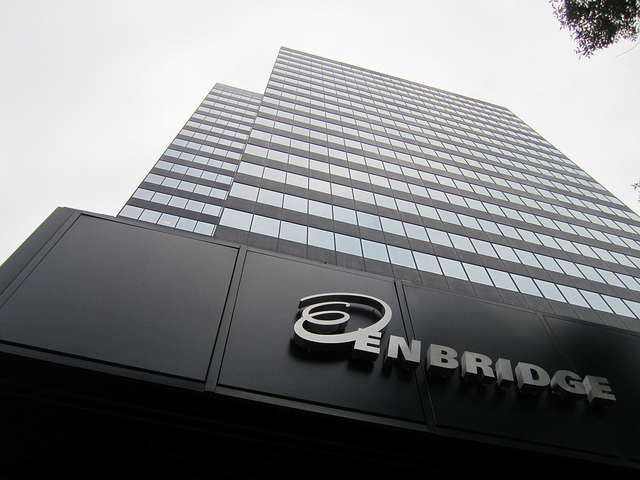The Trudeau government will make a major pipeline decision this week. By Nov. 25, it will have to rule on the massive $7.5-billion Line 3 pipeline to the U.S.
An approval by the federal government would allow Enbridge to build 1,600 kilometres of new pipeline from Hardisty, Alberta to Superior Wisconsin. The original Line 3 was built in 1968 and is nearing the end of its serviceability.
“The old pipeline will be decommissioned and left underground while a new larger pipeline is installed,” Metro News reported.
The approval would increase the capacity of the pipeline by 370,000 barrels per day. It will go from its existing 390,000 bpd to 760,000 bpd and perhaps more significantly, it will allow it to switch from carrying light crude oil to heavier oil including diluted bitumen for another 50 to 60 years.
“Kevin Lee, an attorney with the Minnesota Centre for Environmental Advocacy, said it is disingenuous to call Line 3 a ‘replacement’ of existing infrastructure, because it carries so much more oil and it will travel on an entirely different route through his state. The new route also travels through a rich water environment and over some of the state’s most pristine land.” CBC reported.
Enbridge admits the pipeline would mean 19 to 26 megatonnes of upstream greenhouse gas emissions each year. Even with that, Robert Steedman, the NEB’s chief environmental officer, said, “The Enbridge Line 3 project is in the Canadian public interest and is not likely to cause significant adverse environmental effects.”
But Lee said that is not the case, “When you build fossil fuel infrastructure that lasts for 50 or 60 years, which will ship higher and higher volumes of the most carbon-intensive resource that exists, you’re basically saying, ‘We don’t care about climate change.'”
Another CBC report adds, “Line 3 already has presidential approval, but the replacement project must undergo separate permitting processes in the U.S. [including in Minnesota] before construction can begin.”
Enbridge wants to replace the entire pipeline by December 2017.
In December 2015, the Assembly of First Nations of Quebec and Labrador, the Assembly of Manitoba Chiefs, and the Union of British Columbia Indian Chiefs wrote to Trudeau to call for a complete overhaul in the review process for all pipelines, specifically naming the Line 3 pipeline.
On April 27, 2016, The Council of Canadians — along with the Brandon-Westman, Calgary, Comox Valley, Fredericton, Kent County, London, Mid-Island, Montreal, Ottawa, Peterborough-Kawarthas, Quill Plains, Quinte, Regina, Saint John, Saskatoon, South Shore, Thunder Bay, and Vancouver-Burnaby chapters — signed an open letter calling on the Trudeau government to reject an expansion of the tar sands.
That letter emphasized that new pipelines, like Line 3, are incompatible with our fair share towards a 1.5-degree world, that we need to protect both our climate and water and that the United Nations Declaration on the Rights of Indigenous Peoples must be respected.
The Council of Canadians first expressed opposition to the building of the new Line 3 pipeline in a March 2014 blog.
The Trudeau government is widely expected to reject the 525,000 bpd Northern Gateway pipeline this week, but approve the 760,000 bpd Line 3, as well as the 890,000 bpd Trans Mountain pipeline by Dec. 19.
Trudeau is also on record as a supporter of the 830,000 bpd Keystone XL pipeline, which had been rejected by U.S. President Barack Obama but is backed by President-elect Donald J. Trump.
Canada already exports about 3.76 million barrels a day of oil to the United States. Line 3 and Keystone XL would add 1.2 million barrels a day to that total. Canada consumes about 2.32 million barrels of oil a day.
As a result of the proportionality clause in the North American Free Trade Agreement — which says Canada must maintain at least the same level of oil and gas exports to the US as it had supplied for the past 36-months unless Canadian consumption is cut proportionately — Canada could not end oil exports to the US, phase out the tar sands by 2040 and then rely on conventional oil until 2050 when it would then fully transition to a 100 per cent clean energy economy.
Like this article? Please chip in to keep stories like these coming.




